Open Government Engagement Team
We appointed renowned public engagement and digital experts from across Canada to be part of the Open Government Engagement Team. This team was established to provide advice to the government on open government initiatives.
The team’s report
The engagement team consulted with people across the province – online and in person – to determine how government can be more open, transparent and accessible.
The team developed recommendations based on what they heard.
Read their report – Open by Default: Moving Ontario Forward
Highlights of earlier meetings
Discussion Summary: St. Catharines Public Library (November 23, 2013)
- Open government is a work in progress with room for improvement.
- Releasing government data needs to be done carefully with high standards for accuracy and completeness to help ensure public confidence.
- There are real business needs for open data and open information – lack of data can be an obstacle for business development.
- Government needs to focus on facts when making decisions.
- Citizens need open dialogue with government on issues like electoral reform, electricity generation and health care.
- Consumers expect that dealing with government should be as easy as dealing with Amazon or Google.
- There are concerns about the impact on personal privacy, but optimism about future of Open Government and the possibilities it creates for citizens.
Discussion Summary: Ryerson University, Toronto (November 25, 2013)
- Open dialogue is primarily about building trust and understanding.
- The opening up of information is the first step to having people actively being involved.
- Open information and data are precursors to open dialogue – you can’t have good dialogue without reliable information.
- If information in government is going to be more open, citizens need to be able to assess its context once released.
- There needs to be dialogue at all levels of the process, including in process design.
- Feedback also needs to be incorporated into the process for real participation to occur.
- Benchmarks and metrics are important to measure the progress of openness.
Discussion Summary: Valhalla Inn, Thunder Bay (December 2, 2013)
- The cost of accessing information and navigating the policy process is currently prohibitive to the average taxpayer, particularly under the Freedom of Information Act.
- Ontario is facing a generational change which is going to demand more access to information.
- True consultation is required before decisions are made by governments and agencies.
- Culture within government is a starting point for change.
- All government policy should not only go through an open dialogue before it becomes policy, government should also support interveners to participate in the political process.
- Open dialogue is needed where there will be the most impact – at the community level.
Discussion Summary: London Public Library (December 11, 2013)
- Ontario has a wealth of datasets that could be released to improve government credibility instead of having data pulled off the internet from private entities.
- Citizens need to hear about things before decisions are made.
- Need to have a framework in place and create platforms that can help encourage people to get involved – make it easy.
- Government needs to connect with whatever platform it takes to have more two-way dialogue with the public.
- Keep it as simple as possible – keep legislation simply written, keep budget simple and clear
- Government should work to make the data more interesting – infographics, apps, aggregates. The data need to be useful.
- Crowdsourcing is a sophisticated way of doing public opinion research.
- Information should be as transparent as possible. It will lead to improvement.
Discussion Summary: Century Gardens Recreation Centre, Brampton (December 16, 2013)
- Transparency must come from the top - Premier’s Office
- If government is raising the Open Government conversation, it needs to be prepared to respond to the issues that surface as a result.
- Government is difficult to navigate for the average person – it needs to be easier and more accessible.
- More open dialogue will help people interpret data and provide for richer analysis and policy-making.
- Need the ability to access data, but also the capacity to understand it.
- Just making data open will have positive impacts.
Discussion Summary: University of Ottawa (January 14, 2014)
- Government needs to focus on providing a single window of services and information.
- Face-to-face discussions between the government and citizens can be the best format for engagement and the best catalyst for ideas.
- Online engagement can also be effective if the design goes beyond a virtual comment box.
- Government requires open dialogue as much as the public does because policy choices need public input to help make trade-offs.
- The public needs to be prepared to learn more about key issues to help provide informed feedback on policy decisions.
- If people are going to get involved, they need to know something will be done with their input.
- Issues need to be relevant for the public and demonstrate how they impact people in their daily lives.
Discussion Summary: Kitchener City Hall (January 17, 2014)
- People need opportunities to engage and contribute when it’s convenient, not necessarily at a specific time and location.
- It’s important to have connectivity among levels of government.
- Providing options for engagement, multiple channels for communications and timely responses can help people connect with government in meaningful ways.
- When it comes to data, governments need to work together to make data sets useful, compatible and accessible.
- Enabling members of the community to help curate data could help the process.
- Government can improve public trust with stronger transparency and accountability.
- Political leadership is essential as open government initiatives roll out.
Team members
Chair: Donald G. Lenihan
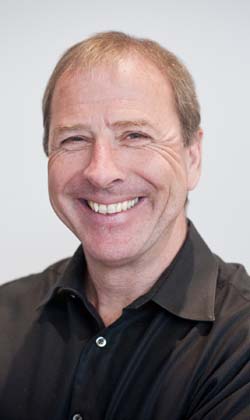 Donald is Senior Associate at the Public Policy Forum in Ottawa, Canada. He is an internationally recognized expert on democracy and public engagement, accountability and service delivery. He is currently leading an 18-month, province-wide public engagement initiative for the Government of Ontario to renew the Ontario Condominium Act 1998.
Donald is Senior Associate at the Public Policy Forum in Ottawa, Canada. He is an internationally recognized expert on democracy and public engagement, accountability and service delivery. He is currently leading an 18-month, province-wide public engagement initiative for the Government of Ontario to renew the Ontario Condominium Act 1998.
Donald’s latest book, Rescuing Policy: The Case for Public Engagement, was published in January 2012 and is an introduction to the field of public engagement, as well as a blueprint for change, and a sustained argument for the need to rethink the public policy process.
Donald has over 25 years of experience in the field as a project leader, writer, speaker, senior government advisor, trainer and facilitator. Throughout his career, he has developed and led many research and consultation projects involving senior public servants, academics, elected officials, journalists and members of the private and third sectors from across the country. He is the author of numerous articles, studies and books, a former columnist with the Hill Times newspaper in Ottawa, and a regular columnist for iPolitics. He earned his PhD in political theory from the University of Ottawa.
Read Donald’s articles on ipolitics
Leslie Church
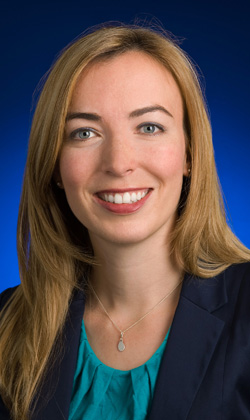 Leslie leads Global Communications and Public Affairs for Google Canada, where her mission is to promote the digital economy and the success of Canadians and Canadian businesses online.
Leslie leads Global Communications and Public Affairs for Google Canada, where her mission is to promote the digital economy and the success of Canadians and Canadian businesses online.
A graduate of the London School of Economics and the University of Toronto Faculty of Law, she holds over a decade of involvement in Canadian politics and public policy. She is a long-time advocate for higher education – having contributed to organizations including the Canadian Millennium Scholarship Foundation, University of Toronto Medicine, and the Ontario Undergraduate Student Alliance, as well as advising on the Government of Ontario’s "Rae Review" of post-secondary education and 2012 Strategic Mandate Agreement expert panel.
Over the past several years, Leslie has worked extensively in national politics, most recently serving as Director of Communications for the Leader of the Official Opposition, Hon. Michael Ignatieff, including through the 2011 federal election. Originally from Edmonton, Alberta, Leslie practiced law at Torys LLP in Toronto.
Follow @lesliechurch on Twitter
David Eaves
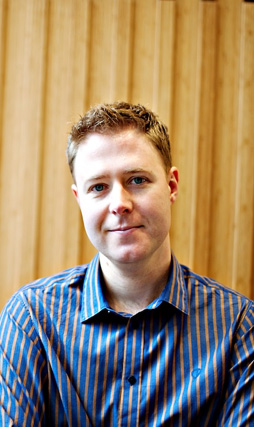 A public policy entrepreneur, open government activist and collaboration expert, David is a leading advocate for open data and public service sector renewal.
A public policy entrepreneur, open government activist and collaboration expert, David is a leading advocate for open data and public service sector renewal.
In 2009, David’s work with the Mayor of Vancouver led to the drafting of the Open Motion, initiating one of Canada’s first open data portals. He then pursued a successful campaign – including testifying before parliament – to persuade the federal government to launch an open data initiative. He now serves on the Federal Government’s Open Government advisory Panel, StatsCan’s External Advisory Panel and served on the Australian Gov 2.0 International Reference Group.
David works with numerous leading organizations. He advises or has given talks to Code for America, the White House Office of the Chief Technology Officer, the World Bank, Mozilla and Greenpeace among others. He is a fellow at the Tow Centre at the Columbia University and an affiliate at the Berkman Centre for the Study of Internet and Society at Harvard University.
Born and raised in Vancouver, David is a graduate of Queen’s University and Oxford University.
Follow @daeaves on Twitter | Read David’s blog
Peter MacLeod
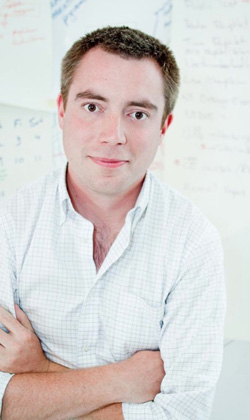 Peter is the principal of MASS LBP, an innovative firm based in Toronto which works with forward-thinking governments and corporations to deepen and improve public consultation and engagement. Since 2007, MASS has led some of Canada’s most original and ambitious efforts to engage citizens in tackling tough policy options while pioneering the use of Civic Lotteries and Citizen Reference Panels on behalf of a wide array of clients.
Peter is the principal of MASS LBP, an innovative firm based in Toronto which works with forward-thinking governments and corporations to deepen and improve public consultation and engagement. Since 2007, MASS has led some of Canada’s most original and ambitious efforts to engage citizens in tackling tough policy options while pioneering the use of Civic Lotteries and Citizen Reference Panels on behalf of a wide array of clients.
A graduate of the University of Toronto and Queen’s University, he writes and speaks frequently about the citizen’s experience of the state, the value of public imagination and the future of responsible government. He is a director of Toronto’s Wellesley Institute for Urban Health and the Quetico Foundation. He is also the founding co-chair of the Wagemark Foundation.
Follow @petermacleod on Twitter
Don Newman CM, LLD
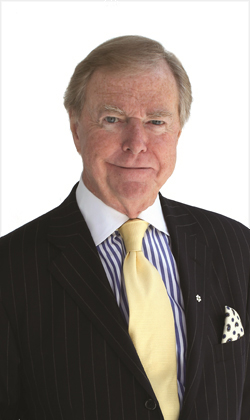 Don Newman is a writer, broadcaster, public analyst and public affairs consultant. He also chairs the advisory board of Canada 2020, a public policy discussion forum, and advises a number of other non-profit boards.
Don Newman is a writer, broadcaster, public analyst and public affairs consultant. He also chairs the advisory board of Canada 2020, a public policy discussion forum, and advises a number of other non-profit boards.
Mr. Newman’s storied career in journalism spans more than 40 years, including as senior parliamentary editor of CBC Television News for over two decades. He helped launch Canada’s first all-news channel (CBC News Network), reported for The National, anchored daily and weekly political affairs programs and live specials, and was U.S. correspondent for both CTV and CBC. His career memoir “Welcome to the Broadcast” was published this fall by Harper Collins Canada.
A Member of the Order of Canada, a life-member and past president of the Parliamentary Press Gallery, Mr. Newman has received the Gordon Sinclair Award (GEMINI) for lifetime achievement in Broadcast Journalism the Press Gallery’s Charles Lunch Award for Outstanding Coverage of National Affairs; the Public Policy Forum’s Hyman Solomon Award for excellence in Public Policy Journalism as well as honorary degrees from Queen’s University and the University of Winnipeg.
Ray Sharma
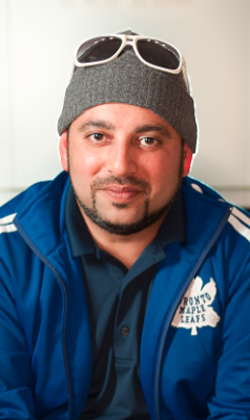 Ray is the founder and President of XMG Studio Inc., where he oversees the mandate of having fun developing innovative mobile games for tens of millions of XMG fans worldwide. Prior to XMG, Ray co-founded Xtreme Labs, where he was Chairman of the Board. At the time of sale to private investors, Xtreme Labs apps have an aggregate of 300 million downloads across its client base. Ray is also a founding Partner of Extreme Venture Partners where portfolio highlights include Locationary (sold to Apple), Bumptop (sold to Google), J2Play (sold to Electronic Arts).
Ray is the founder and President of XMG Studio Inc., where he oversees the mandate of having fun developing innovative mobile games for tens of millions of XMG fans worldwide. Prior to XMG, Ray co-founded Xtreme Labs, where he was Chairman of the Board. At the time of sale to private investors, Xtreme Labs apps have an aggregate of 300 million downloads across its client base. Ray is also a founding Partner of Extreme Venture Partners where portfolio highlights include Locationary (sold to Apple), Bumptop (sold to Google), J2Play (sold to Electronic Arts).
Prior to recent adventures in the mobile app economy, Ray spent over 10 years in wireless technology investment banking research. During that period he was the top-ranked wireless technology analyst based on Greenwich Associates and Brendan Wood International surveys of fund managers for five of eight eligible years. Ray has also served as a community representative of the Ontario Judicial Council, which provides oversight of provincially appointed judges and masters that operate within the judicial system.
Outside of business interests, Ray is a fan of God of War, Toronto Maple Leafs, and the game of golf.
Norm Sterling
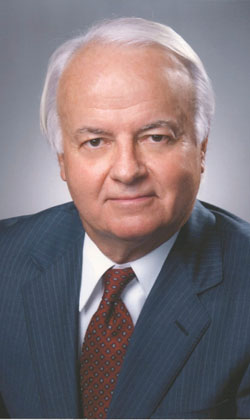 Norman Sterling served as an Ottawa area Member of the Ontario Legislature from 1977 to 2011 as a member of the Progressive Conservative Party.
Norman Sterling served as an Ottawa area Member of the Ontario Legislature from 1977 to 2011 as a member of the Progressive Conservative Party.
A graduate of Engineering from Carleton University and of Law from the University of Ottawa, he practiced both professions prior to entering politics in 1977.
During his parliamentary career, he held nine different Cabinet posts, served as Government House Leader for three years and chaired the Public Accounts Committee for seven years while in opposition. He is known for taking a non-partisan approach in debate and has a record of defending and improving our parliamentary and justice institutions.
Elaine Meller Todres
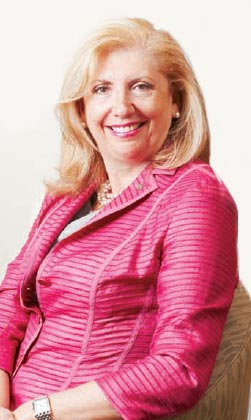 Elaine’s career spans government, not for profit and volunteer sectors. After completing a PhD in Political Science at the University of Pittsburgh, she joined the Ontario civil service. In 1985, she became the Assistant Deputy Minister of Women’s Issues— bringing about pay equity legislation and sharpening her lifelong interest in women’s issues, with a focus on women’s health.
Elaine’s career spans government, not for profit and volunteer sectors. After completing a PhD in Political Science at the University of Pittsburgh, she joined the Ontario civil service. In 1985, she became the Assistant Deputy Minister of Women’s Issues— bringing about pay equity legislation and sharpening her lifelong interest in women’s issues, with a focus on women’s health.
Elaine was the Deputy Minister in the ministries of Human Resources, Culture and Communications, and Culture, Tourism and Recreation. She also held the position of Deputy Solicitor General and Deputy Minister of Corrections.
In 1997, she became President of Baycrest Centre Foundation and stayed for three years, completing a campaign for the Apotex Centre – Jewish Home for the Aged.
Currently, she’s CEO of Todres Leadership Counsel, a consultancy practice specializing in corporate governance, regulatory governance, human resources, strategy and strategic facilitation.
Recently, Elaine authored a study on regulatory governance in consumer protection for the Minister of Consumer Services.; She’s on the faculty of the Ontario Hospital Association Centre for Governance and is a leading speaker on the subject of governance. She sits on the Boards of Northern Trust Canada, CAPREIT, and Assessment Strategies Inc.
Hirad Zafari
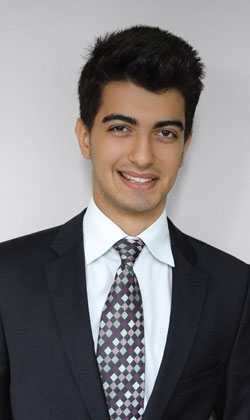 Hirad Zafari is currently in his first year of Medical Sciences at Western University. He serves as the chair of the board of directors of the Ontario Student Trustees' Association. Formerly the president of the association, a student trustee of the Toronto District School Board (TDSB), and a member of the Minister’s Student Advisory Council, he represented and advocated for the needs and voice of over 2 million Ontario students at the local and provincial level.
Hirad Zafari is currently in his first year of Medical Sciences at Western University. He serves as the chair of the board of directors of the Ontario Student Trustees' Association. Formerly the president of the association, a student trustee of the Toronto District School Board (TDSB), and a member of the Minister’s Student Advisory Council, he represented and advocated for the needs and voice of over 2 million Ontario students at the local and provincial level.
During his tenure, Hirad ensured financial literacy for TDSB students through a motion which embeds financial literacy in the classroom through a curriculum for high school students. Further, he was a key organizer in the battle to return extra-curricular activities to students in Ontario, and has continually made efforts to represent students through meetings with the key leaders in education in Ontario, such as the Premier and Minister of Education. He has written articles and contributed blogs to various media outlets advocating for students’ right to be responsible for their education and future. Further, he is a founding member of Stick It To Fast Food, a social media awareness campaign created to encourage students to make their own lunches instead of buying and eating fast food.
Hirad spends his spare time keeping up to date with international politics and business. He also plays soccer competitively.